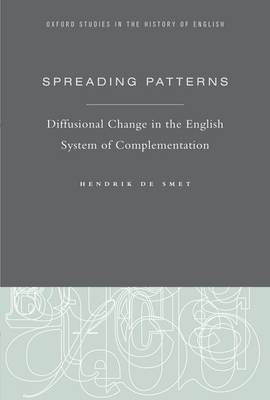
- Retrait gratuit dans votre magasin Club
- 7.000.000 titres dans notre catalogue
- Payer en toute sécurité
- Toujours un magasin près de chez vous
- Retrait gratuit dans votre magasin Club
- 7.000.0000 titres dans notre catalogue
- Payer en toute sécurité
- Toujours un magasin près de chez vous
148,45 €
+ 296 points
Description
Spreading Patterns examines how new constructions emerge and spread through the grammar of a language, in a process called "diffusion". This is done by tracking the development of three types of complements from the Middle English period to the present day. These are subject-controlled gerund complements, for...to-infinitives, and subject-controlled participial complements. In the first half of the book, De Smet focuses on how and why patterns diffuse. In the second half, which is largely corpus-based, De Smet tests his theoretical model of diffusion on the three complement types. His work demonstrates how diffusion interacts with the grammatical system of complementation, how diffusion proceeds, step-by-step, and why diffusion is directional. Spreading Patterns will appeal to scholars and advanced students of English, history of English, and historical linguistics.
Spécifications
Parties prenantes
- Auteur(s) :
- Editeur:
Contenu
- Nombre de pages :
- 304
- Langue:
- Anglais
- Collection :
Caractéristiques
- EAN:
- 9780199812752
- Date de parution :
- 14-12-12
- Format:
- Livre relié
- Format numérique:
- Genaaid
- Dimensions :
- 163 mm x 236 mm
- Poids :
- 539 g

Les avis
Nous publions uniquement les avis qui respectent les conditions requises. Consultez nos conditions pour les avis.






